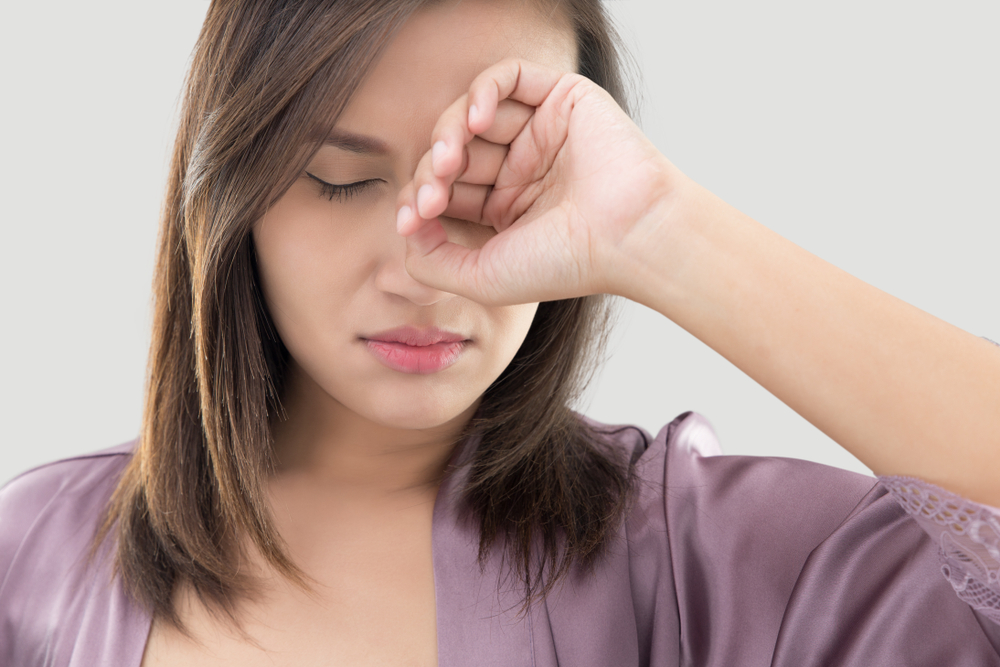
Dry eye is a common condition that arises when your eyes do not produce enough tears or the tears evaporate too quickly. This lack of proper lubrication can cause a variety of discomforts, including a stinging or burning sensation, redness, and even blurred vision.
What Causes Dry Eye?
When we sleep, our blink rate decreases significantly compared to when we're awake. This lack of blinking causes our eyes to become exposed to air for longer periods, resulting in the evaporation of tears and, subsequently, dry eyes. Certain sleep conditions, such as sleep apnea or the sleeping environment itself, can exacerbate this problem.
One of the most prevalent causes is age. As we get older, our bodies naturally produce less tear fluid, which can lead to dry eyes. Additionally, certain medications, like antihistamines or blood pressure drugs, can also reduce tear production.
Meibomian gland dysfunction (MGD) can also lead to dry eye by disrupting the production of meibum, an oily substance crucial for stabilizing the tear film. When these glands are dysfunctional, the meibum becomes thicker or decreases in quantity, compromising its ability to prevent the rabid evaporation of tears.
Strategies to Combat Dry Eye
Staying hydrated plays a crucial role in maintaining eye health. When we're dehydrated, our bodies prioritize supplying water to vital organs, often at the expense of our eyes, leading to dryness. Aim to drink at least eight glasses of water a day to keep your eyes and body well-hydrated.
Similarly, sufficient sleep is essential for optimal eye health. During sleep, your eyes are continuously lubricated, removing irritants such as dust or smoke that might have accumulated throughout the day.
A humidifier can be a useful tool in your arsenal against morning dry eye. Humidifiers work by adding moisture to the air, which can help prevent your tears from evaporating too quickly. This can be especially beneficial in dry climates or during the winter when indoor air tends to be dry due to heating systems.
When to See an Eye Doctor for Dry Eyes
While occasional dry eyes in the morning are usually nothing to worry about, persistent symptoms should be evaluated by an eye doctor. If you're experiencing persistent discomfort, redness, sensitivity to light, or blurred vision, it's time to schedule an appointment with your eye doctor. They can perform a thorough examination to determine the underlying causes of your dry eyes and suggest treatment strategies.
The Benefits of OptiLight Treatment for Dry Eyes
One of the innovative treatments for dry eyes is the OptiLight treatment. This non-invasive procedure uses controlled light pulses to stimulate the glands that produce tears, thus helping to alleviate dry eye symptoms. OptiLight treatment is quick, painless, and can provide long-lasting relief from dry eyes. Plus, it's a safe procedure with minimal side effects, making it an excellent option for those struggling with chronic dry eye.
Managing Dry Eye Effectively
By staying hydrated, getting adequate sleep, using a humidifier, and adopting certain lifestyle strategies, you can help combat morning dry eye. If your symptoms persist, it's important to consult with an eye doctor. And remember, innovative treatments like OptiLight can provide a viable solution to your dry eye problem.
To learn more about managing dry eye symptoms and treatment options, visit Eagle Eye Vision Center at our office in Stafford, Virginia. Call (540) 720-0407 to schedule an appointment today.









